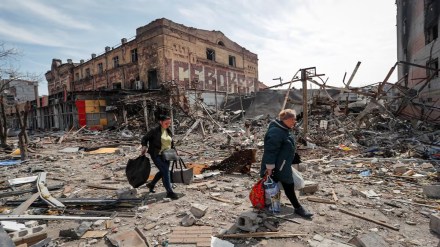Ahead of the third anniversary of the war between Russia and Ukraine, US President Donald Trump blindsided Europe, if not Ukraine, by talking directly to Russia’s President Vladimir Putin to “immediately” end this conflict. Washington and Moscow have already had talks in Riyadh — attended by US secretary of state Marco Rubio, national security advisor Mike Waltz, and special envoy Steve Witkoff, and Russia’s foreign minister Sergey Lavrov and foreign policy advisor Yuri Ushakov — without Europe and Ukraine at the table. European leaders had a foretaste of what was in the offing at the Munich Security Conference when top US officials stated that America no longer saw European security as its main priority and dismissed Ukraine’s demands for a return of all seized territories and its North Atlantic Treaty Organization (NATO) membership as “unrealistic”; and that Ukraine’s security guarantees would henceforth be provided by the Europeans and not the US. To forge a response to Trump’s peace initiative, European leaders held an emergency meeting in Paris but the tidings are not propitious. While they called for higher defence spending, there were deep divisions at the meeting over sending troops to back up any peace deal in Ukraine.
Peacemaking, however, is problematic, stemming in good part from how the warring parties perceive the interlocutors. President Volodymyr Zelenskyy has expressed disappointment over not being at the negotiating table: “Ukraine regards any negotiations on Ukraine without Ukraine as ones that have no result, and we cannot recognise… any agreement about us without us.” The US is not a disinterested peacemaker as it has sought a price or payback for its support for Ukraine though securing 50% ownership of Ukraine’s mineral deposits, including graphite, lithium, and uranium. Zelenskyy has rejected this as it is too focused on US interests without offering any specific security guarantees. Russia no doubt sees Trump’s initiative as an opportunity to return from the cold. But it is unlikely to succeed with the US President if it makes maximalist demands that it is essential to settle the real reasons for this conflict with cast-iron guarantees to stop the eastward expansion of NATO. Or that a reset in its relations with the US entails dismantling the western sanctions regime imposed since 2014.
Washington and Moscow’s talks were “positive” as they decided to appoint high-level teams to work on a path to end the conflict, restore full diplomatic ties, and explore closer relations and economic cooperation. No specific time has been decided for a one-on-one meeting between Trump and Putin. The Russians also considered it “unacceptable” to have NATO peace-keeping forces on Ukrainian soil and wanted NATO to disavow its promise in 2008 to make Kyiv a member in the future. While Trump believes that Russia is willing to stop the fighting, the fact remains that wars do not end unless the parties involved feel the need to silence their guns as they cannot achieve their military objectives. This does not seem to be the case at present. Ukraine is unfazed by the barrage of Russian missile and drone attacks on its cities as it is emboldened by seizing Russian territory in the Kursk region. Russia continues to register significant gains in Ukraine’s eastern region. Clearly, there is a long road ahead for this three-year-long conflict to wind down to a conclusion which sets objective limits to any mediation efforts for an immediate ceasefire.
